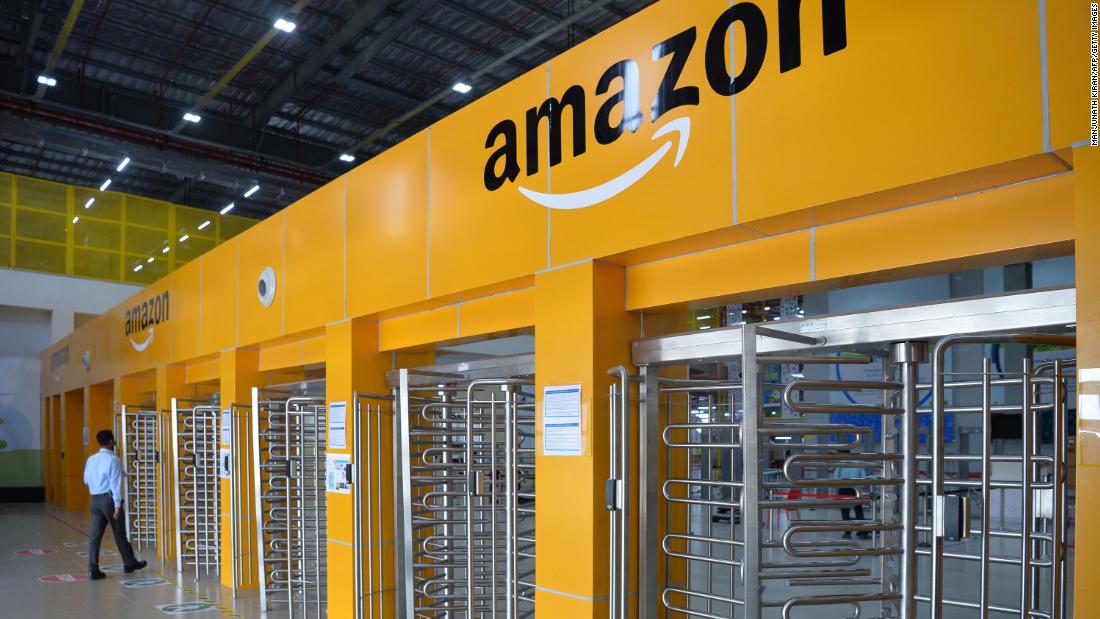A court in the country’s capital, New Delhi, ruled on Tuesday that a deal by Reliance Industries to buy local rival Future Retail for $ 3.3 billion should be suspended after Amazon (AMZN) objected to that last year. The Delhi Supreme Court said it was “satisfied that immediate orders are needed to protect the rights of [Amazon]”and ordered all parties involved in the deal” to maintain the status quo “pending the final judgment.
“We have the utmost respect for the Indian legal system and appreciate the provisional order from … Delhi High Court,” an Amazon spokesman told CNN Business.
Future Retail said in a statement that it would “explore all legal remedies and take appropriate steps to proceed” with its agreement with Reliance. The company can potentially challenge any decision in a higher court.
Reliance declined to comment.
The decision is the latest event in what appears to be a proxy battle between two of the richest men in the world for India’s growing online retail market. At stake is strategic access to a chain of supermarkets and popular retail stores in India, something that Jeff Bezos’ Amazon and Reliance – owned by India’s richest man, Mukesh Ambani – want to have for themselves or to prevent that the other buys.
At the center of the current battle is Future Retail, the dairy cow of the Indian conglomerate Future Group. The retail unit includes brands such as Big Bazaar, a popular supermarket chain. In August 2019, Amazon invested in a Future Group entity that gave it an approximately 4.8% stake in Future Retail on September 30 last year, according to securities records. The deal gave Amazon the right of first refusal to acquire more shares in Future Retail, according to one of the documents.
Amazon argued that the 2019 agreement between it and the Future Group entity included a non-compete clause, a person familiar with Amazon’s perspective told CNN Business in October last year. The clause listed 30 restricted parties with which Future Retail and Future Group could not do business, and Reliance was on that list, the person said.
Amazon sought to enforce this agreement through the Singapore International Arbitration Center (SIAC), with the Southeast Asian country often seen as a neutral jurisdiction to resolve disputes. The SIAC emergency arbitrator ordered a temporary suspension of the deal last October.
Although the Future Group raised questions about the validity of the Singapore arbitration court order in India, the Delhi Supreme Court declared on Tuesday that the order is “enforceable”.
Amazon and Walmart (WMT)Flipkart dominates online shopping in India, controlling more than 60% of the market among them. But Ambani and Reliance made an aggressive move for a slice of that market through JioMart, an initiative announced in 2019 to bring thousands of family-owned stores in India known as “kiranas” online.
Ambani definitely has the resources to match Amazon. Its technology subsidiary, Jio, has more than 400 million users, and Reliance Retail has more than 12,000 stores across India.
According to analysts, Future Retail’s 1,500 stores are not mandatory for any of the companies, but the legal fight could turn into a “battle of the ego” between the two billionaires.
And while it’s currently an advantage for Amazon, that battle is far from over.
.Source
Related
